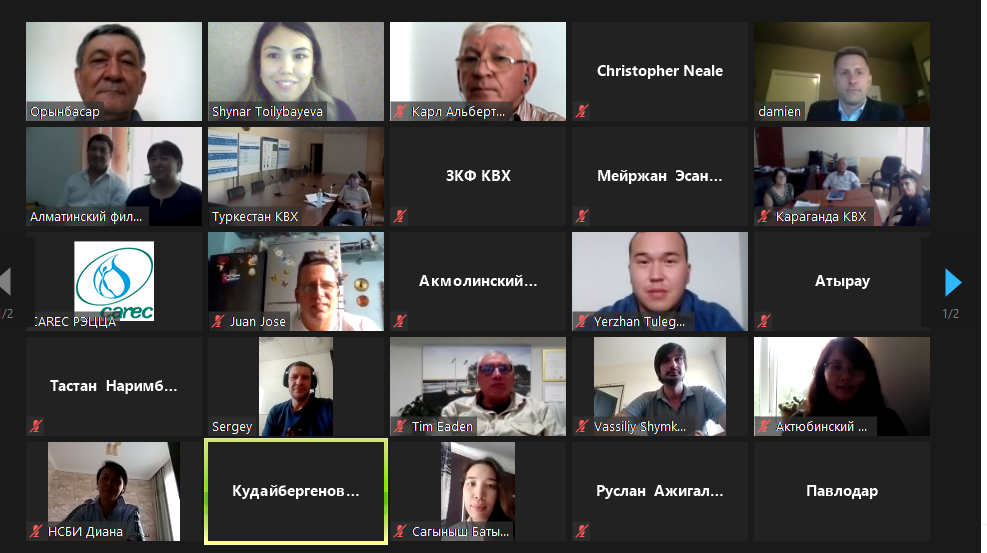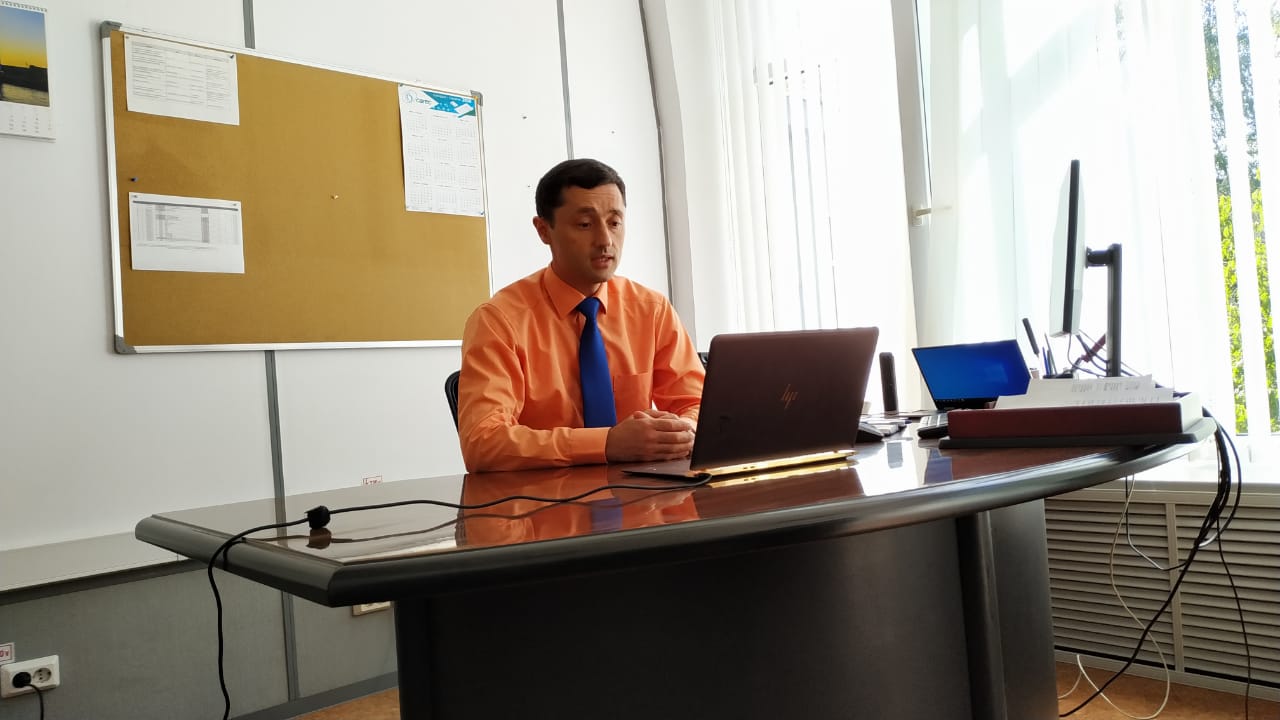
On August 11-13, 2020, a technical online seminar on water resources assessment was held in cooperation with the Committee on Water Resources of the Ministry of Ecology, Geology and Natural Resources of the Republic of Kazakhstan and the University of Nebraska-Lincoln with the support of the CAREC Country Office in Kazakhstan within the framework of the project Smart Waters with financial support from the United States Agency for International Development (USAID).
The following directions were presented at this online seminar:
• Automated water accounting in irrigation systems in Kazakhstan: development prospects and methodological approaches
• Existing technologies and technical means of automation of accounting and distribution of water resources
• International experience of groundwater accounting
• International experience of surface water accounting
• Modernization of surface water supply networks
• Professional skills in modern irrigation field and role
• Functions and composition of information management systems for automatic metering and distribution of water
• Recommendations for improving basin planning and automatic water accounting and distribution of water resources of transboundary rivers
• Modern devices for automatic metering of water in irrigation systems
Water, like any other source on Earth, is limited and therefore it is necessary to effectively use this resource. This was discussed at a technical workshop on water resources assessment for specialists from the Committee of Water Resources, Basin Inspections and research institutes.
Ayashev M.T., Deputy Chairman of the Committee on Water Resources of the Ministry of Ecology, Geology and Natural Resources of the Republic of Kazakhstan greeted all the participants and emphasized that the experience accumulated by the lecturers of the University of Nebraska-Lincoln will be useful for Kazakhstan in the process of further work and believed that today's seminar is a significant step in the development of the country's water industry, promotes the exchange of views between by domestic and foreign specialists, as well as that automation and dispatching systems at hydraulic structures will increase the level of operation, significantly facilitating the work of operating personnel. Based on this, a real control system will be created, as well as the reliability, openness and availability of information on water resources for all interested organizations and water users.

Makhmudov Z.Kh., CAREC Executive Director, noted: “At present, in Central Asia, in addition to economic and political issues, there are acute problems of water resources use between countries, and, of course, water depletion and pollution. Each country in bilateral and multilateral cooperation, pursues, first of all, its own interests. However, the willingness to agree on controversial issues may indicate the sincerity and long-term relationship. The ability to access information and educational resources, increase the potential of teachers, experts and specialists from both Kazakhstan and all countries of the region with similar problems in this topic, with a clear focus on the need for joint cross-border actions is an integral component. "
University of Nebraska-Lincoln professor Christopher Neal presented recommendations for improving basin planning and automatic water accounting, where the main observations were as follows:
• Measurements of water resources are fundamental for efficient management of fresh water in multi-use basins (agriculture, urban, industrial, ecological)
• In snow driven hydrologic systems and basins, climate change will result in the further shifting of the runoff hydrograph, with shorter winter snowpack accumulation, more precipitation in the form as rain, earlier spring runoff and potential for flooding
• Additional storage in the form of dams and reservoirs, or underground aquifer storage should be considered
Damien Pearson, Global Business Development Manager, Rubicon Water, gave a presentation on the important steps of modernization, namely what is needed:
• Define desired service level criteria to provide a basis for monitoring performance
• Select an appropriate canal operation strategy
• Ensure procedures for ordering and scheduling water meet irrigator requirements (on-demand, constant flows)
• Understand and adopt a service mentality throughout the organization
• Train staff in service-oriented operations
• Understand what conditions lead to poor delivery service (if any)
• Improve organizational communications at all levels
• Provide remote monitoring of operations throughout the supply network
• Provide excellent flow control and measurement throughout the supply network
• Provide full measurement and accounting of water to assist in finding losses (such as spill and leakage and seepage)
Smart Waters project is implemented by CAREC with the financial support of the United States Agency for International Development USAID during the period 2015-2020. Overall objective of the project is to enhance regional cooperation on shared water resources. Specifically, Smart Waters addresses the knowledge dis-lock in the region in water sector, builds working relations among water managers and specialists, and demonstrates the potential of the basin management approach and cooperation with the academia.

